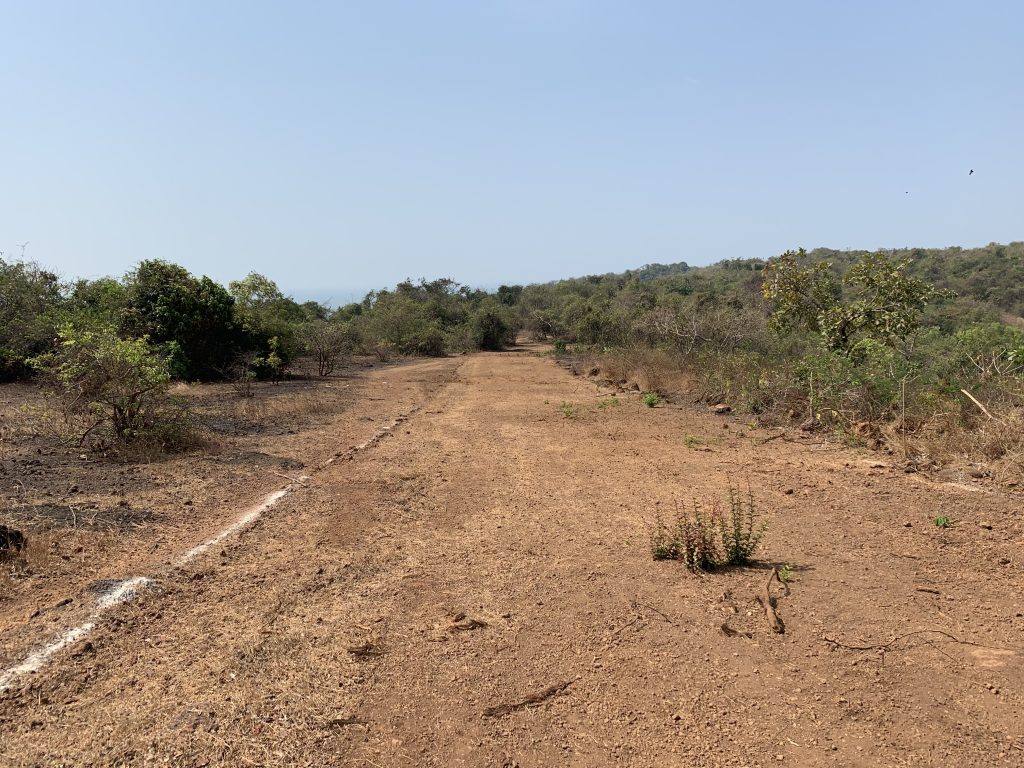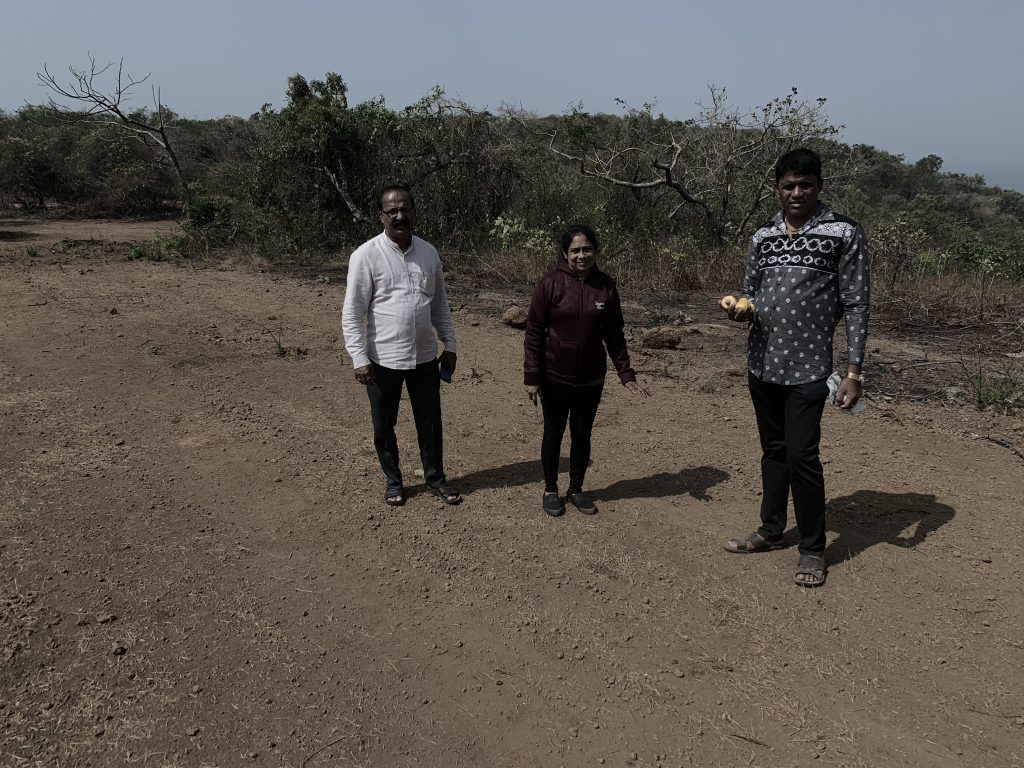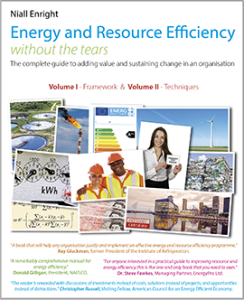
I am writing this post from Goa, on the West coast of India. I flew here from Manchester, in the premium economy section of a Tui Boeing 787 Dreamliner.
According to the ICAO carbon calculator [1] the aircraft will have burned 54 tonnes of fuel on each leg of the journey, which equates to 654kg of CO2 per passenger (2x the standard economy emissions due to the “premium” cabin seating). The plane was full, so I think the calculations are reasonable and, while I could argue that “premium economy” is not really twice the space or mass of standard economy, I don’t quibble with the figures.
So that makes 1.3 tonnes CO2e each for me and my wife, which we have offset, as we have done for many years now, by buying comparatively expensive voluntary carbon offsets from the World Land Trust at £15 per tonne (total cost £32.50). Where the journey is for business we actually double the calculated emissions and ask our customers to pay, more to initiate a conversation with them, rather than than to recover the cost of the offsets.
To put the 1.3 tonnes figure in context, the average per capita emissions of a person in India is 1.73 tonnes in a year and 6.50 in the UK, in 2014, according to the World Bank [2].
Despite the offsets, I do feel guilty about flying. But then it isn’t really just about me. Arriving in Goa, it becomes abundantly clear that tens of thousands of folks depend for their livelihood on the income that tourism brings. Adding to the direct employment effects, tourism has also spurned the development of lots of other infrastructure, such as roads and communications, and supports the artisanal fishermen and a supply chain stretching across the country, judging from the Kashmiri, Rajasthani, Nepalese and other traders whose wares fill the tourist markets on Anjuna Beach. What is noticeable is that many of our fellow tourists are Indians, so maybe the average emissions per tourist Rupee will have declined over time?
So tourism helps lift many people out of poverty – a just, and noble thing. I was first challenged on the dynamic of “local versus global” by a conversation I had several years ago with Alex Pitman, then head of sustainability and energy efficiency at The Cooperative, a well-known UK ethical food retailer. Why, I asked, wasn’t the Co-op getting behind the “food miles” campaign to reduce transportation emissions? Alex’s reply was compelling. “Because we have made a promise”. He went on to explain that the Co-op was proud of the foundation work it had done around Fairtrade and the social impact this was having. They couldn’t just walk away from their flower growers in Kenya, their green-bean suppliers in Peru or their coffee growers in Central America.
Those of us with a concern for the environment tend to fall into two schools of thought: folks who think that we must make dramatic changes to our lifestyles to dramatically reduce consumption and those of us who believe that we need to change the supply chain that responds to our consumption. The classical “demand-side” and “supply-side” responses. In practice, as we all know, we need to do both, although I tend to favour the supply-side as I think that few folks are willing to curtail their lifestyles to a sufficient degree for demand side to work alone (especially those in the developing world who want schools and hospitals and tv and jobs and mobile phones etc). Asking people to don “hair shirts” is almost certainly going to get them to disengage. No, we need to start with the premise that we need to “do more with less” – we need to lift billions of people out of poverty while consuming considerably fewer natural resources. We need to become vastly more efficient in servicing our demand. That is not to say that we shouldn’t consume less as individuals – or rather consume intelligently! Our purchasing power is one of the most powerful levers there are for change.
So, as tourist-consumers, we should ensure that we spend plenty and generously in the places we visit. We should favour ecologically sound destinations, lodgings and activities and we should find out about the local sustainability issues and engage appropriately with them.

Which brings me to this morning. My wife and I took a “birding” walk up behind our hotel at Baga Bridge – a walk which promised a shaded narrow trail with over 30 species of birds to be seen in a variety of habitats, Much to our shock, upon reaching the ridge of the hill we saw that a wide swathe of the woodland had been cleared for a road, with the undergrowth on either side having been burned. The road clearing stretched all along the ridge for a couple of km at least. As we were taking this in we were approached by a group of local people who explained to us that they were campaigning against the road which had been built on government land. They passionately described how they, and their parents before them, would visit this site and collect the cashew nuts to be turned into liquor and that the burning had killed many of the trees and displaced the birds.

The gentleman on the right is a Councilor and is holding fresh cashews seeds, which can be used to produce liquor as well as nuts.
These concerned citizens were in the process of taking the case to the High Court to get the road stopped and asked if we would be willing to give them a few sentences on a video – unscripted – to say why we were on the hill and what we thought of the clearing, which they could use as evidence in Court. Of course, we did so without hesitation. They also took pictures of the birding guide by Peter North that marked the path, as evidence that this was a special place recognised by visitors from the UK.
I was moved as they described their tears on first seeing the damage and their determination to halt the building that would follow if the road was established. We in turn said that we would share their story and also get in contact with the bird-watching community back home to see if they could raise objections with the Indian tourism authorities and so forth. We will keep those promises. I can feel some pro-bono time from SustainSuccess will be justified!
So, should we have stayed at home and spared the planet the emissions we produced? Probably. With choices, though, come responsibilities, so we are doing what we can to understand the negative impacts of those choices and put them right, as well as the positives. I’m not sure that is the right answer and I am troubled by it. But, unless we talk about these things, we can’t come to a conclusion.
[1] https://www.icao.int/environmental-protection/Carbonoffset/Pages/default.aspx
[2] https://data.worldbank.org/indicator/EN.ATM.CO2E.PC
*Apologies to Erica John for nicking the title of her 1970’s feminist novel.



0 Comments